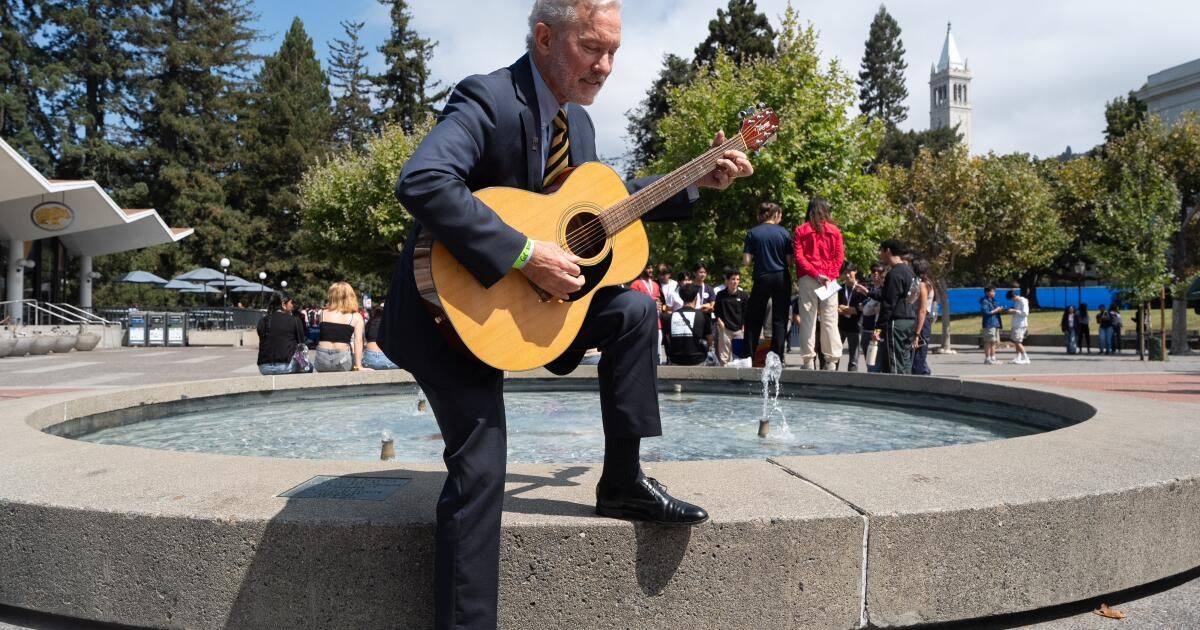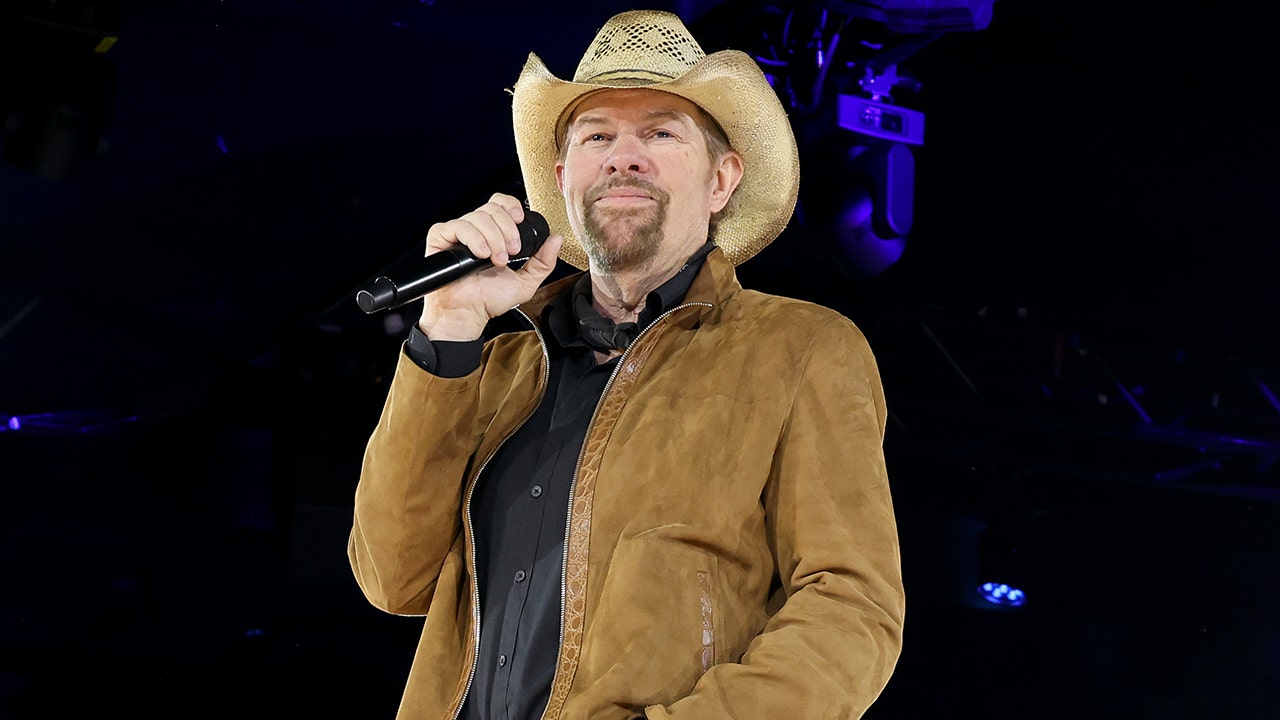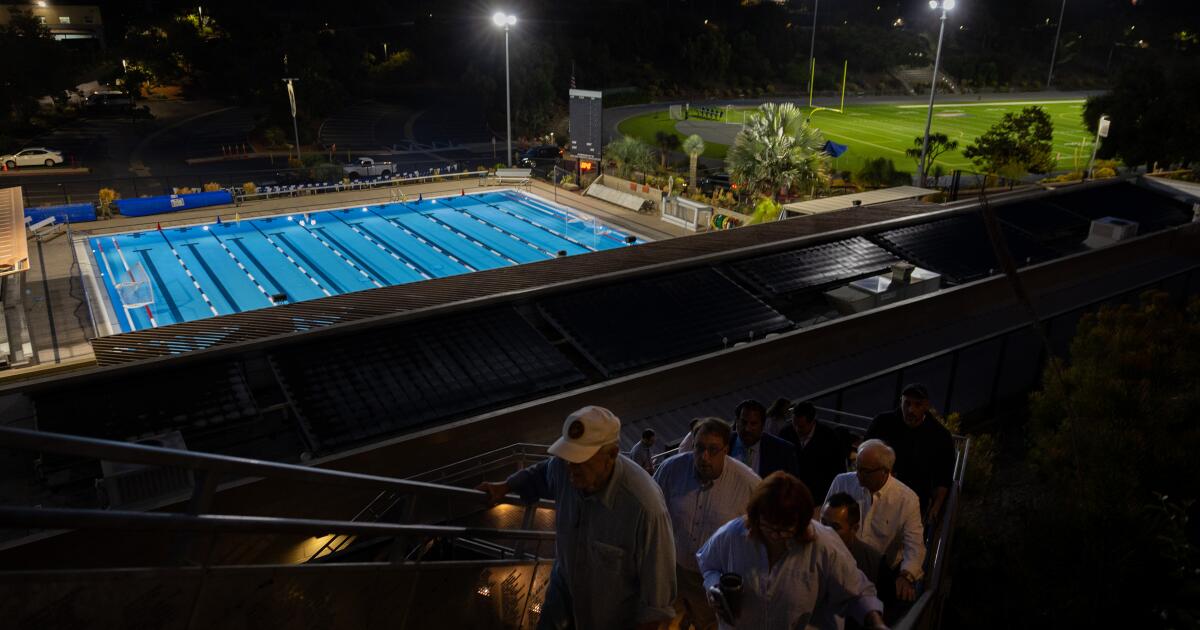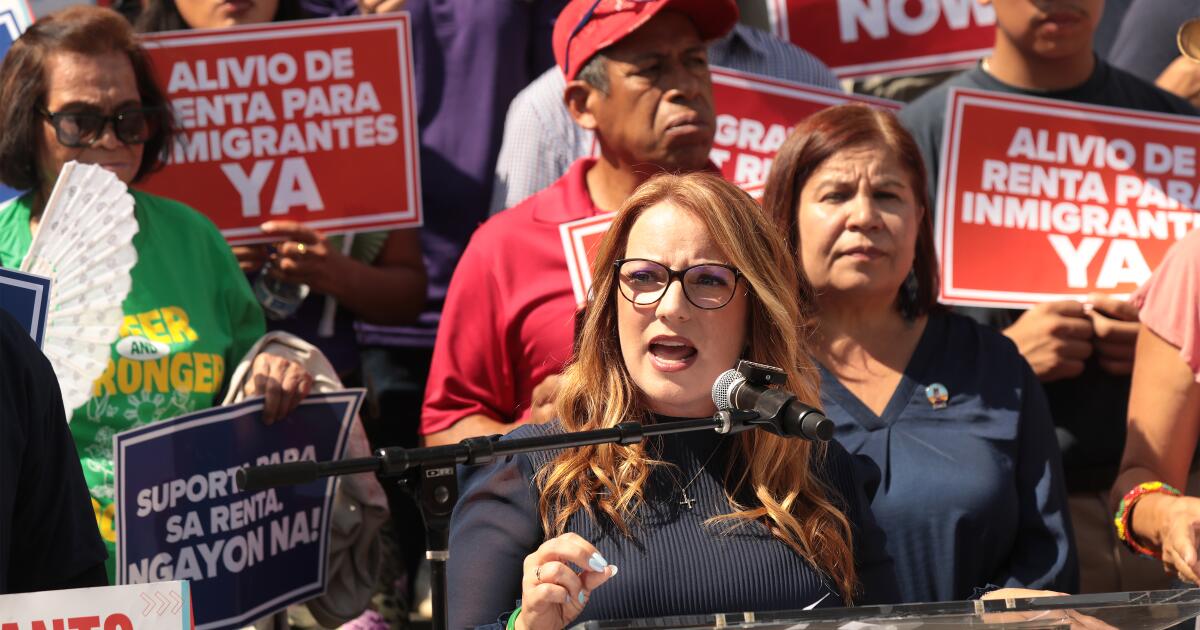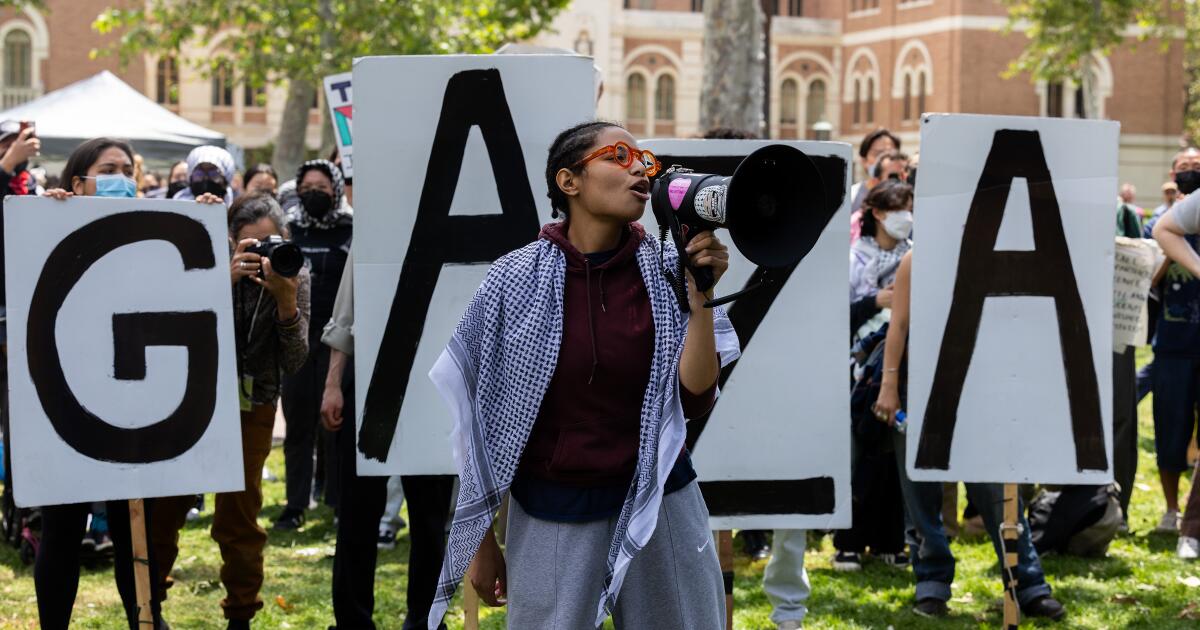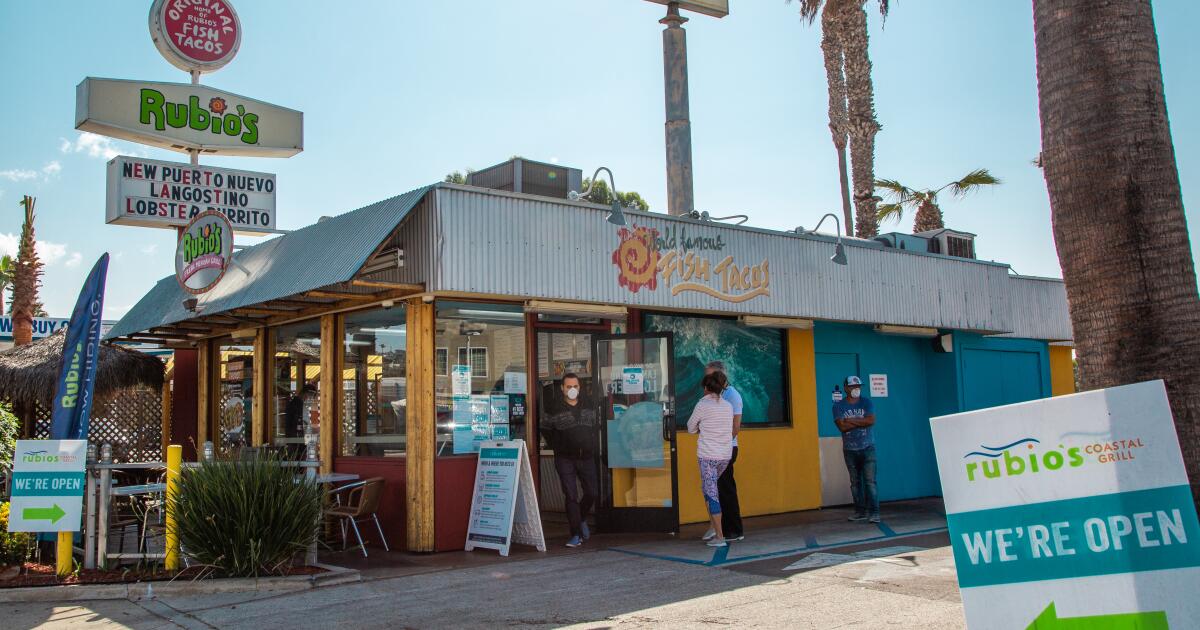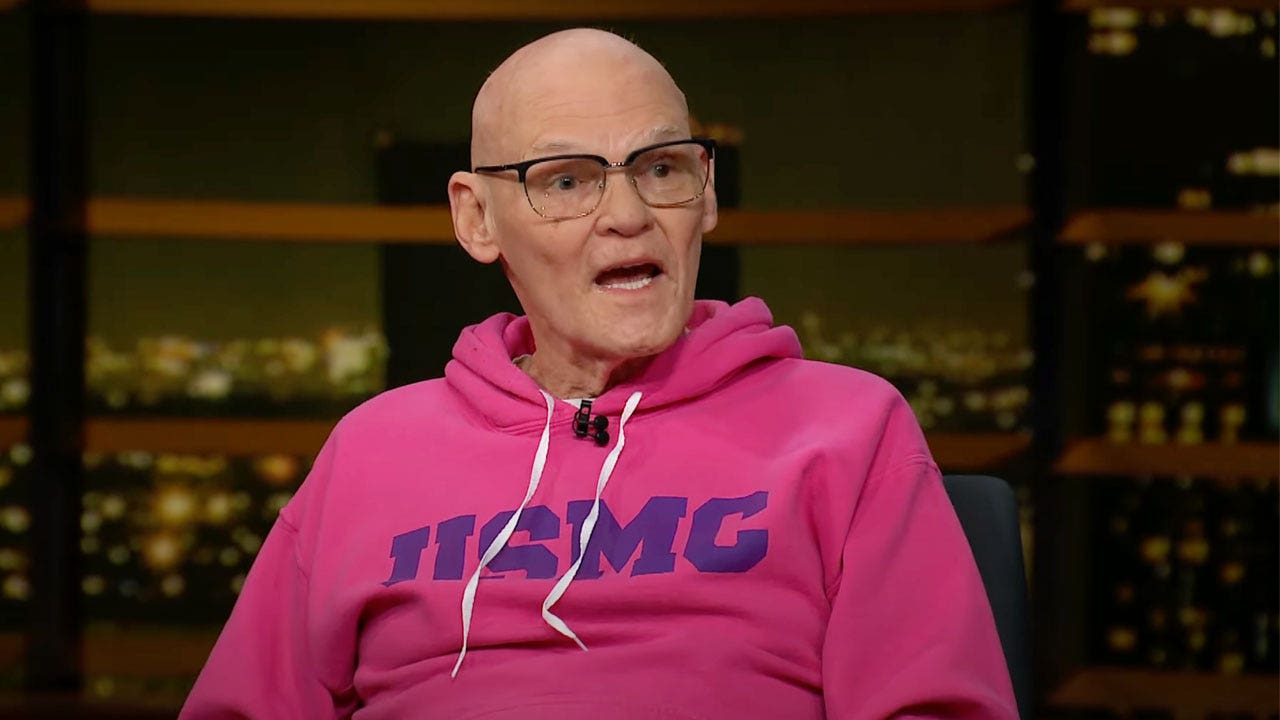UC Berkeley is perhaps best known as the birthplace of the student free speech movement and for its ranking as one of the top public research universities in the world.
But when new chancellor Rich Lyons ushered in the new school year last week, he leaned into a lesser-known position: It is the world's number one university for producing venture-funded startups founded by alumni.
Speaking to 9,000 new students at his welcoming ceremony Thursday at Haas Pavilion, Lyons highlighted the “large scale” of innovation and entrepreneurial spirit on campus and “the Berkeley way” of questioning the status quo to generate new ideas.
In an interview, Lyons focused on that theme, saying new ideas are needed to help address Berkeley’s toughest problem: bringing financial strength to a campus struggling with state funding deferrals and an ongoing structural budget deficit. Berkeley has struggled with two budget deficits over the past eight years and faces another of up to $150 million in 2024-25 due in part to rising expenses such as mandated salary increases. The campus has not yet decided whether to dip further into its reserves.
New UC Berkeley Chancellor Rich Lyons gives a pep talk to incoming students after commencement ceremonies at Haas Pavilion on Thursday.
(Paul Kuroda/For The Times)
But the campus can potentially generate a staggering $1 billion in new revenue over the next 10 years through entrepreneurial initiatives, said Lyons, who previously led the Haas School of Business. Lyons, a professor of economics and finance, also served as associate vice provost and director of the office of innovation and entrepreneurship before taking the role in July.
“It has to be something new,” said Lyons, dressed in jeans and a “Berkeley Changemaker” T-shirt as he outlined his ideas. “It has to be big enough … to be transformative.”
Protests: 'We plan to be firm'
Lyons, 63, also spoke about the protests, which are expected to grow this week as students return to campus. Last spring, pro-Palestine supporters attracted global attention when they set up tent encampments in Berkeley and elsewhere. Some were peaceful gathering places for solidarity activities — Berkeley managed to reach an agreement with protesters to end their encampment voluntarily. Others became conflict zones with counterprotesters and were forcibly dismantled by law enforcement.
Protest activities this fall will draw new scrutiny after the University of California and California State University ordered all of their campuses to adopt a zero-tolerance policy toward those who violate anti-camping rules, block access to buildings and hallways and wear masks to conceal identity while committing crimes. The directive was pushed by state lawmakers who told UC and CSU to develop a “system-wide framework” to ensure consistent enforcement of the rules, and are withholding $25 million in state funding from UC until President Michael V. Drake delivers a report on his efforts by Oct. 1. No state funding is directly involved for the CSU.
Lyons said he would respect the right to free speech, but would enforce rules on how and when to exercise it.
“There are hundreds of places on the Berkeley campus where students can express their right to free speech,” he said. “It’s part of our culture. We are a university that stands for free speech. But intentionally breaking the rules — you’re now in the world of civil disobedience and we’re going to think about the consequences.”
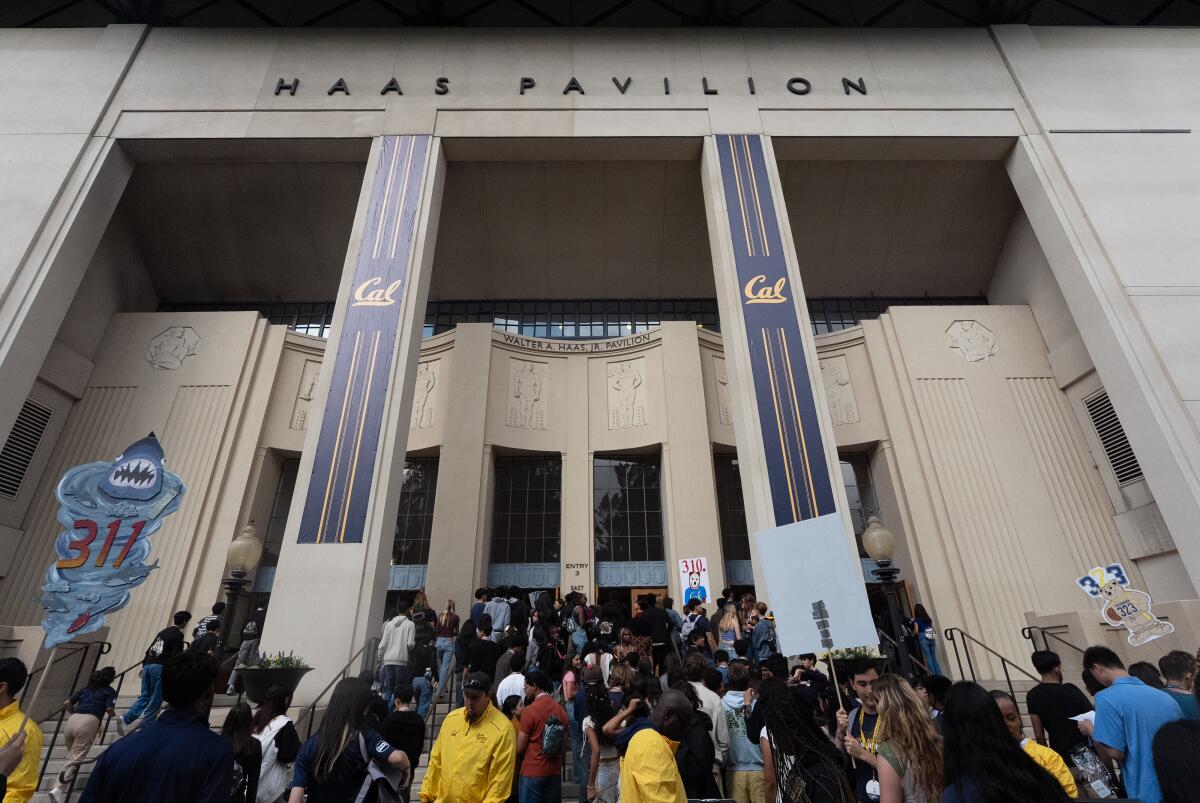
Students line up to fill Haas Pavilion during the homecoming ceremony at UC Berkeley on Thursday.
(Paul Kuroda/For The Times)
He said the key question of when to escalate action against those who violate campus codes under UC's “tiered response” framework will depend on the situation: whether they are students or outsiders, whether they are repeat offenders, whether the action is intimidating and jeopardizes the rights of all students to feel welcome and safe.
“There is no obvious answer,” he said. “As chancellor, the timing is my decision. We intend to be consistent and firm and to comply with the directive.”
As for the mask ban, which has raised many questions, Lyons clarified that Berkeley would not challenge mask-wearing unless it was worn by someone who was breaking the rules or laws. The campus’s written policy states that “individuals are permitted to wear masks and will not be questioned by campus staff as to why they are wearing them, as long as they are not breaking the law or policy by wearing them.” It also specifies that “individuals are not prohibited from wearing masks in order to avoid being doxed, but they must comply with policies and laws while wearing them.”
Remain neutral on social and political issues.
Lyons said he would lead Berkeley toward “institutional neutrality,” a policy holding that universities should not take positions broadly on social and political issues but should instead encourage students and faculty to debate them. The University of Chicago adopted the policy in 1967. Other universities followed suit after the Oct. 7 Hamas attack on southern Israel and Israel’s military retaliation in Gaza fueled pressure for statements condemning one side or the other.
USC, the University of Texas System and Johns Hopkins University also announced this month that they would refrain from taking positions on social and political issues unless they were directly relevant to their institutional missions and operations. Purdue, Stanford, Syracuse and Harvard adopted similar positions earlier this year.
“There will be fewer pronouncements about an institutional position for Berkeley, but we’re not going to go to zero,” Lyons said.
To help ease the searing divisions over Israeli-Palestinian issues, Lyons said several organizations across campus are working to foster dialogue. Initiatives include training on media literacy, empathic listening, healing collective trauma and a possible new course on “openness to opposing viewpoints.”
Urgent needs
On other matters, Lyons noted that Berkeley has increased its enrollment of California students by 25% over the past decade and said funding was needed to continue growth and maintain excellence. Philanthropy can help, he said, highlighting a $12 million contribution from businessman Scott Galloway to Berkeley and UCLA to support students who don’t pursue a four-year degree but want training in specific fields. Berkeley is using its share to fund scholarships for adults to explore introductory courses in data analytics, facilities management or project management.
Other pressing needs — supporting humanities research, doctoral students and campus libraries — require new forms of funding, he said. Berkeley estimates that potential reductions in state funding could amount to $14 million less over the 2024-25 fiscal year than envisioned in the original agreement forged with Gov. Gavin Newsom and possibly rise even further next year.
Enter innovation and entrepreneurship, the topic that most excites Lyons. In a quick rundown of different ways to raise funds, punctuated by many nods of approval, the chancellor outlined several initiatives that he believes could mark a financial turning point for Berkeley.
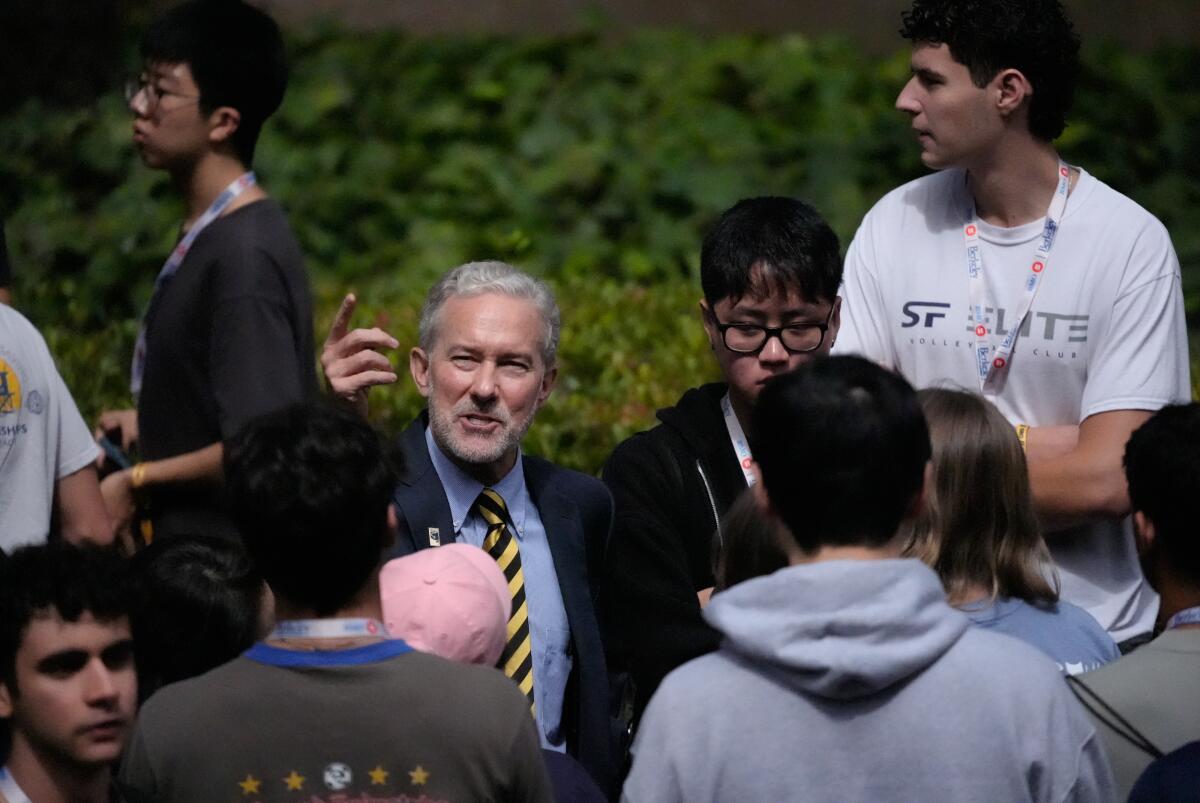
New UC Berkeley Chancellor Rich Lyons gives a pep talk to incoming students after commencement ceremonies at Haas Pavilion on Thursday.
(Paul Kuroda/For The Times)
He said the campus is negotiating to receive equity stakes in startups, often at a lower royalty rate, for licensing their intellectual property and now owns such stock in more than 100 companies. Philanthropists have given the campus about $75 million over the past year to invest in venture capital funds that invest primarily in Berkeley companies. The campus has received 10 percent of the returns from six different venture capital portfolios. Berkeley also created a company — Second Lab — that rents out unused scientific equipment, recruiting founders from among its alumni to spin it off, and negotiated to retain 16 percent of the firm’s stock.
“People might look at this and say, ‘This is crazy in the marketplace,’ but then they realize we have a billion dollars that we’ve acquired in a way that’s consistent with our values,” Lyons said. “We’re finding new ways to leverage that.”
Lyons' energy and vision have sparked enthusiasm. While her predecessor, Carol Christ, was deeply admired, she has had to deal with multiple crises: the pandemic, tuition pressures, budget deficits, protests over the war between Israel and Hamas, lawsuits and demonstrations against her People's Park housing plan.
“I see this as moving from an era of resilience to an era of hope,” said Oliver M. O’Reilly, vice provost for undergraduate education.
Shrinidhi Gopal, the undergraduate student body president, also said she feels optimistic about Lyons and is impressed by its track record of integrating the values of diversity, equity and inclusion into the business school. She said students’ priorities this year were safety and the future of People’s Park, which is slated for student housing and support projects after the state Supreme Court removed the last legal barrier to development in June. Gopal said students wanted to continue conversations about the park.
Lyons also won fans at the welcoming ceremony for new students. After his remarks, the chancellor jumped to his feet to dance with Oski, the Cal Bears mascot, eliciting oohs and aahs from students as the marching band played on.
“We loved your dance!” one student told her.

